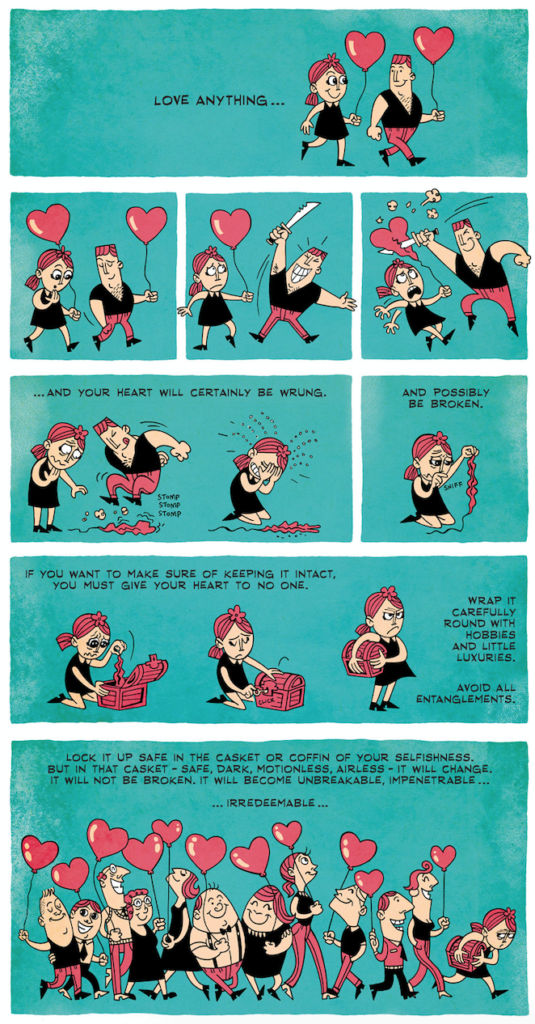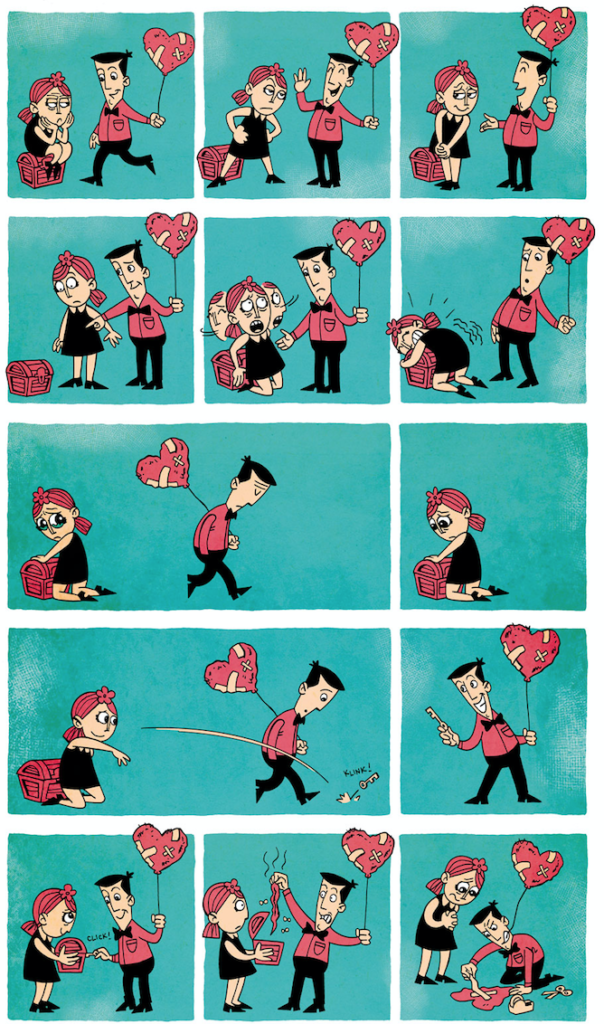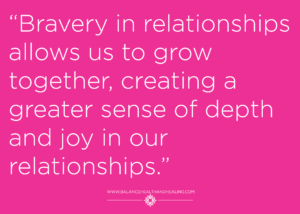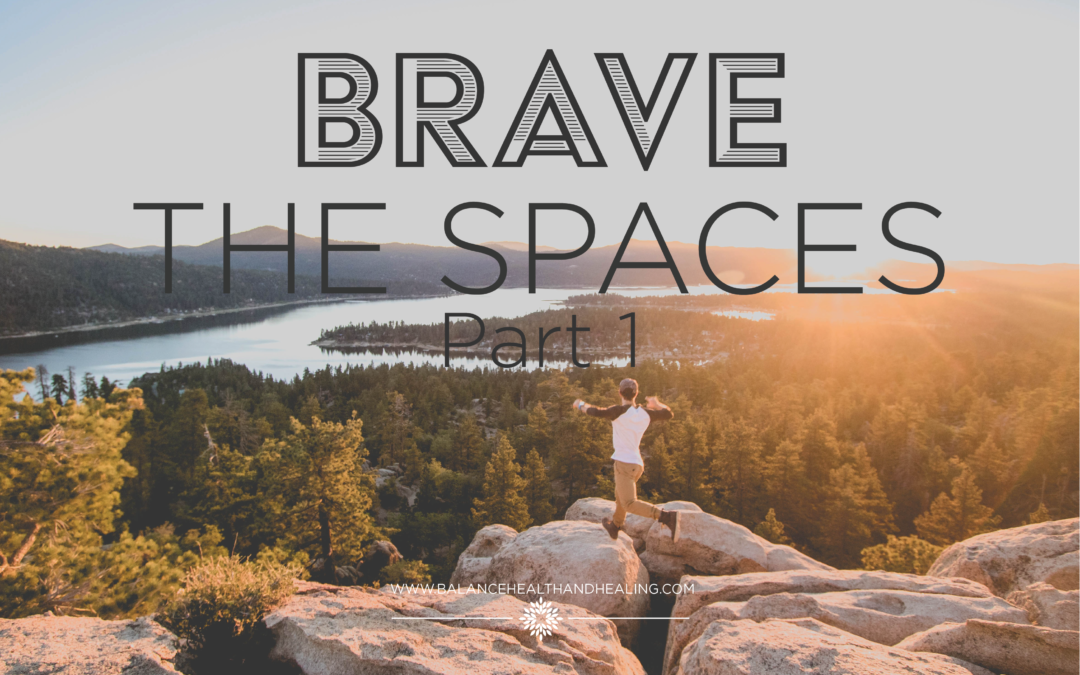I teach a class about multicultural issues at a local university. On the first day, the students did a reading entitled “From Safe to Brave Spaces” by Arao & Clemens (2013). This reading talks about the importance of bravely pushing ourselves in uncomfortable ways so that we may feel a deeper sense of compassion, connection, and empathy towards those who are different from us. As I reflected on this reading to teach in class, I began to wonder if this concept applied to different situations. Could we move our relationships more toward bravery? Could we raise brave children and make our families brave spaces? I’ve pondered this idea quite a bit over the last several weeks and I’ve discovered that bravery is not only beneficial in our relationships, it is vital if we wish to truly connect in vulnerable and meaningful ways and truly see one another.
When we talk about healthy relationships, the idea of safety often comes up. I found it really interesting to see the definition that Merriam-Webster offers up, which is “safety” as the condition of being protected from danger or risk. As I reflected on this definition, I recognized that to be in a relationship is inherently risky. It doesn’t always feel comfortable or “safe” to be vulnerable or to let yourself be open and honest with another person. Protection against violence, unkindness, or abuse is vital. This type of safety is non-negotiable and is not the type of safety that I will be discussing here. When I refer to safety from this point forward, I will be talking about this idea of protection from risk. Not only is this impossible in our relationships, but this type of safety keeps our relationships stuck in a place of disconnection.
Let me illustrate with a comic:



It takes bravery, or “the quality of having or showing mental strength in the face of fear or difficulty” (Merriam-Webster’s Dictionary) to be vulnerable…to be loved and to love others. Being physically and emotionally safe, free from violence and abuse, is a prerequisite to this kind of vulnerable bravery. One cannot begin to be open and vulnerable if their physical or emotional well-being is at risk. However, even in extremely physically and emotionally safe relationships we are not completely protected from risk. It might not feel safe (meaning comfortable or risk-free) to share difficult emotions. It may not always feel safe to show who you really are, even the messy parts. It may not be safe to recognize and evaluate how you need to be better in the relationship. It may not always feel safe to ask for what you need from a partner.
These are BRAVE things to do. They require us to reach out in vulnerability and courage, even when it may feel risky. This kind of emotional and relational bravery can propel our relationships in new  directions. Bravery in relationships allows us to grow together, creating a greater sense of depth and joy in our relationships. This type of joy and growth and depth cannot be found when we are always feeling perfectly comfortable, free from risk. The thing is, when we are free from risk in our relationships, we are probably holding important pieces of ourselves back from our partners. It may be a relationship free from risk, but is likely also free from the beauty of deep vulnerable connection.
directions. Bravery in relationships allows us to grow together, creating a greater sense of depth and joy in our relationships. This type of joy and growth and depth cannot be found when we are always feeling perfectly comfortable, free from risk. The thing is, when we are free from risk in our relationships, we are probably holding important pieces of ourselves back from our partners. It may be a relationship free from risk, but is likely also free from the beauty of deep vulnerable connection.
When we show up in our relationships bravely, we give our family members, partners, and friends the opportunity to meet our bravery with compassion, kindness, and their own vulnerability. Can you recall a time that this has happened in your relationships? As I’m writing this I can physically feel the sense of belongingness and connection that come from these types of risky and beautiful interactions. They are not easy, in fact, they are really difficult. However, our willingness to meet the risk bravely can transform our relationships with those we love.
Check back for the next couple of blogs from me as we continue to discuss bravery in our relationships including: engaging in brave communication and a few specific ways we can foster more bravery in our relationships.

